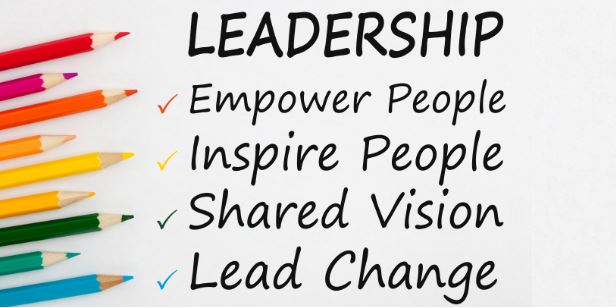Leading The Way To Success: Key Components of Organisational Leadership

What is Organizational Leadership and Why is it Important
Organisational Leadership- it is more than just a heavy term. Organisational Leadership, by textbook definition, is a management approach in which leaders help set strategic goals for the organisation while motivating individuals within the group to successfully carry out assignments in service to the goal.
A company CEO, army general, a political party leader, they all are the examples of organisational leadership, they are responsible for directing and guiding their organisation. Organisational leadership is dual-focused, this management approach works towards what is best for the individuals in the group as well as the groups as a whole simultaneously.
Any person can be a ‘boss’ but not a leader, leadership is a skill developed and learnt over experience approach and perception.
So, what are the key components of organisational leadership? There are five of them:-
1. Worldview
Organisational leadership comes with developing and understanding your worldview as well as understanding the worldview of others- this helps you to analyse the varying perspectives of the people you are professionally concerned with.
Here, worldview not only concerns political stance, religious viewpoints or identity but it is more than that, it incorporates everything an individual believes about the world, combining the tangible and the intangible.
An individual’s attitudes, opinions, beliefs, and the outside forces that influence the individual define his/her worldview.
One who does not take into consideration how individuals interface with the world is in a much weaker position when it comes to leading individuals. Moreover, organisational leadership requires an understanding of the composite worldview of the organisation, which consists of varying, even conflicting world-views of the individuals within the organisation.
2. Strengths
Capitalization of strength and recognition and management of weaknesses are the key factors of successful leadership. It is noteworthy that strength is not necessarily the same as ability. An ability is a strength only if you can keep it consistent to reach the organisational goal.
The building blocks of strength are:
– Talents: Naturally recurring patterns of thought, feeling and behaviour
– Knowledge: Facts and lessons learnt.
– Skills: The steps of an activity
Developing strength in an activity requires certain natural talent. Although strength can also be built with skills and knowledge.
You do not need to have strength in every aspect of a role to excel in the role, the same goes with organisational leadership.
3. Ethics
Strengths and worldview are not the only components required when it comes to organisational leadership. It requires ethics as well because of ethics aid leaders in balancing truth and loyalty, individuals and communities, short-term and long term, justice and mercy.
Ethics is a process and lens by which leaders approach a problem or situation. Ethics requires the leader to be impartial, yet engaged. It is the compass which helps the leaders navigate through not only right vs wrong situations but also right vs right.
4. Communication
To be able to effectively communicate is another key component of organisational leadership. Effective communication requires the understanding of the VABEs(Values, Assumptions, Beliefs and Expectations) of those with whom the leader communicates.
Understanding someone’s worldview and VABEs enables leaders to acknowledge but look past differences, focus on areas of agreement, and to effectively listen for and hear the suggestions, ideas and messages of others.
Leaders can move beyond communication barriers (appearance, vocabulary, disability etc) and focus on the message of the speaker.
5. Leadership
Leaders are able to rise beyond the natural fears and lead by an example of adding value to the organisation. Managers and leaders are not the same. Leaders possess strategic thinking- not only an understanding of the vision of an organisation but also the ability to effectively carry out and communicate that vision. Anyone, anywhere, at any level can be a leader.
The cornerstones of leadership are:
- Truthfulness and transparency
- Promise keeping
- Fairness
- Respect of the individual
These four cornerstones combined decide how an individual would be perceived as a leader and in the case of organisational leadership, perception is the reality for all effective purposes.
Leaders may employ various methods of leadership
-Model The Way(Set an example)
– Share Your Vision(Enlist others)
-Challenge The Process(look for ways to grow)
– Enable Others To Act(Empowerment)
– Set Goals/Build Trust(Direction)
-Encourage The Heart(Positive reinforcement)
So that was it for the five components required for successful organisational leadership. Here are the key takeaways
Successful Organisational Leadership Includes:-
Working to understand the world-views of others
Recognising and developing your strength as well as recognising, acknowledging and working on your weaknesses.
Looking for the ‘hidden alternative’
Focusing on the message, not the messenger, the idea, not the owner of the idea, the suggestion, not the person who gave the suggestion.
Appealing to VABEs of others. If you respect individuals, you will earn their respect as well.
Applying the appropriate theories and methods of leadership to a given situation.




